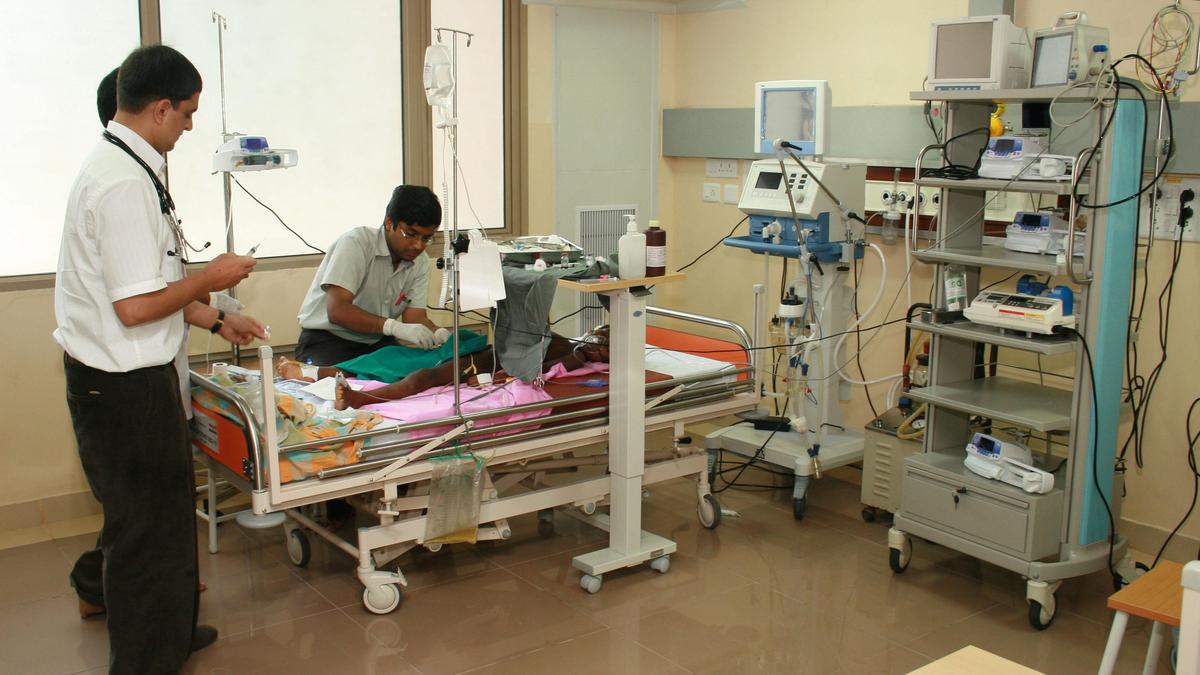Science
Experts Call for Support for Children Recovering from ICU Stays

The aftermath of a prolonged stay in an intensive care unit (ICU) presents significant challenges for children, according to health experts. They stress the importance of comprehensive recovery support to help young patients reintegrate into daily life following severe illnesses. The phenomenon, known as post-intensive care syndrome (PICS), affects a notable percentage of children who survive critical medical crises.
Suchitra Ranjit, head of the paediatric ICU at Apollo Children’s Hospitals in Chennai, recalls a case involving a young patient who overcame a severe episode of dengue fever complicated by multiple organ failure and a brain haemorrhage. Although the child demonstrated physical recovery after a year, they continued to face separation anxiety and struggled to resume their school routine. “Among ICU survivors, 10–20% exhibit features of post-intensive-care syndrome,” Ranjit notes. “The spectrum ranges from mild sleep or anxiety issues to ongoing medical problems or device dependence.” This case highlights the often-overlooked difficulties children face once they leave the ICU.
Advances in paediatric intensive care have significantly improved survival rates, with many centres reporting figures above 95%. Yet, surviving a critical illness is merely the first step; the long-term consequences can be substantial. PICS in children includes physical, cognitive, and psychological impairments. Dr. Krithika P., a consultant paediatrician, explains that children may experience lingering weakness, feeding challenges, or delays in returning to school and play. Parents often grapple with exhaustion, fear, and anxiety.
Research supports the prevalence of these issues. A study conducted in Thailand found that 82.1% of children discharged from the ICU had at least one abnormal domain. Of those, 64.2% exhibited physical morbidity, 26.3% faced cognitive issues, 13.7% encountered mental health problems, and 38.9% reported social difficulties. A systematic review encompassing 31 studies indicated that between 5.3% and 88% of children experienced psychological challenges up to 15 years post-ICU, often showing lower IQ scores and increased emotional or behavioural difficulties compared to their peers.
For some children, PICS manifests as persistent fatigue, organ dysfunction, or long-term dependence on medical technology. Others may experience memory lapses, anxiety, sleep disturbances, and post-traumatic stress. Socially, these children can feel isolated, and family dynamics may become strained.
Prompt recognition of the physical, cognitive, and psychological after-effects of ICU stays is crucial. Weakness and fatigue can surface within days, while cognitive challenges may become apparent during schoolwork, and emotional issues might emerge weeks later. Dr. Krithika emphasises that regular follow-ups, physiotherapy, developmental assessments, and emotional support are essential for helping children gradually regain their strength and confidence.
Despite the evident need, structured post-ICU care remains infrequent. Ranjit stresses that awareness of PICS in children is vital to reducing long-term morbidity.
In resource-limited settings, while life-saving interventions take precedence, models for effective post-ICU care can be developed. Ranjit advocates for multidisciplinary teamwork, hybrid clinics, telehealth, and community education. Dr. Krithika recommends establishing weekly PICU follow-up clinics, implementing short rehabilitation plans, and providing caregiver training at discharge to prevent long-term complications. Teleconsultations can help identify early warning signs, even for families residing far from tertiary care centres.
The reintegration of children into school presents one of the most significant challenges. “The best outcomes occur when medical teams, school staff, and families collaborate closely,” says Ranjit. Social workers or nurses can serve as liaisons among teachers, parents, and doctors, ensuring seamless support. Classmates should be guided to include the recovering child without overwhelming them with pity or excessive attention. Dr. Krithika suggests flexible attendance schedules, shorter school days, and reduced academic loads to ease the transition.
At home, Dr. Manimegalai emphasizes the importance of parents practicing social skills with their children, encouraging open communication, and remaining actively involved in their school life to bolster confidence and support emotional adaptation.
Systemic interventions are necessary to bridge the gap between survival and true recovery. National follow-up guidelines from the Indian Academy of Pediatrics and dedicated paediatric rehabilitation teams, including telehealth options, could enhance equitable access to care. Standardized follow-up protocols that address physical, cognitive, and psychological domains, along with family support and community education, would further improve outcomes.
While advancements in paediatric intensive care have dramatically increased survival rates, the journey to full recovery remains complex. Addressing PICS requires early detection, structured follow-up, and active involvement from families and schools. Through coordinated, evidence-based interventions, children can be supported in returning to a childhood filled with opportunity, confidence, and normalcy.
-

 World5 months ago
World5 months agoSBI Announces QIP Floor Price at ₹811.05 Per Share
-

 Lifestyle5 months ago
Lifestyle5 months agoCept Unveils ₹3.1 Crore Urban Mobility Plan for Sustainable Growth
-

 Science4 months ago
Science4 months agoNew Blood Group Discovered in South Indian Woman at Rotary Centre
-

 World5 months ago
World5 months agoTorrential Rains Cause Flash Flooding in New York and New Jersey
-

 Top Stories5 months ago
Top Stories5 months agoKonkani Cultural Organisation to Host Pearl Jubilee in Abu Dhabi
-

 Sports4 months ago
Sports4 months agoBroad Advocates for Bowling Change Ahead of Final Test Against India
-

 Science5 months ago
Science5 months agoNothing Headphone 1 Review: A Bold Contender in Audio Design
-

 Top Stories5 months ago
Top Stories5 months agoAir India Crash Investigation Highlights Boeing Fuel Switch Concerns
-

 Business5 months ago
Business5 months agoIndian Stock Market Rebounds: Sensex and Nifty Rise After Four-Day Decline
-

 Sports4 months ago
Sports4 months agoCristian Totti Retires at 19: Pressure of Fame Takes Toll
-

 Politics5 months ago
Politics5 months agoAbandoned Doberman Finds New Home After Journey to Prague
-

 Top Stories5 months ago
Top Stories5 months agoPatna Bank Manager Abhishek Varun Found Dead in Well









